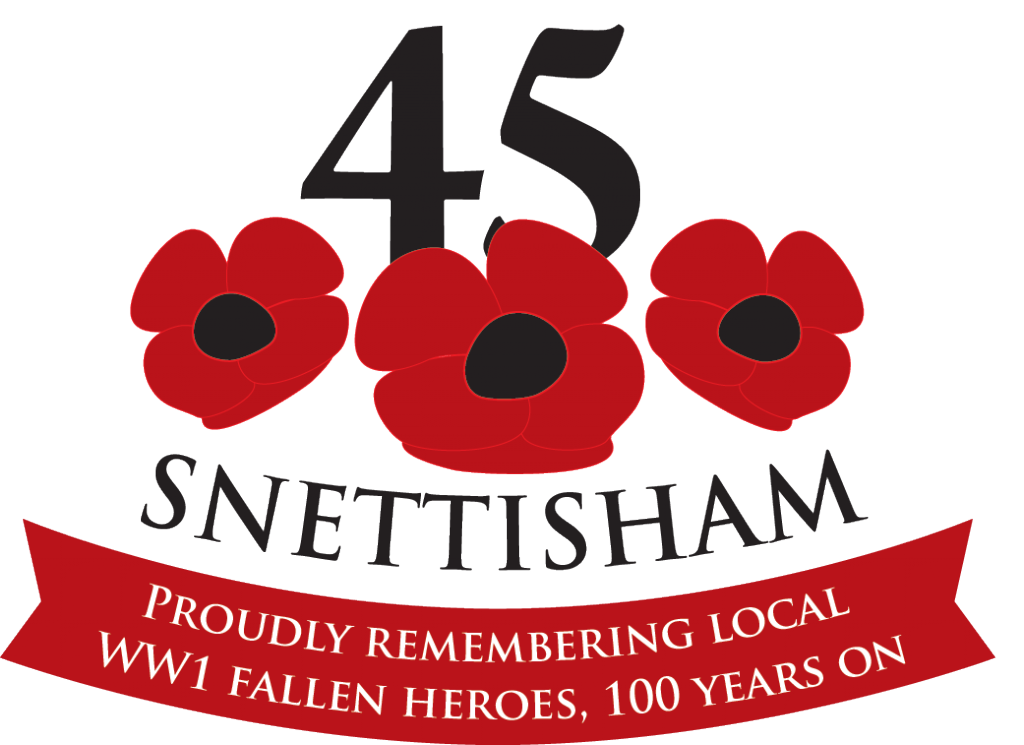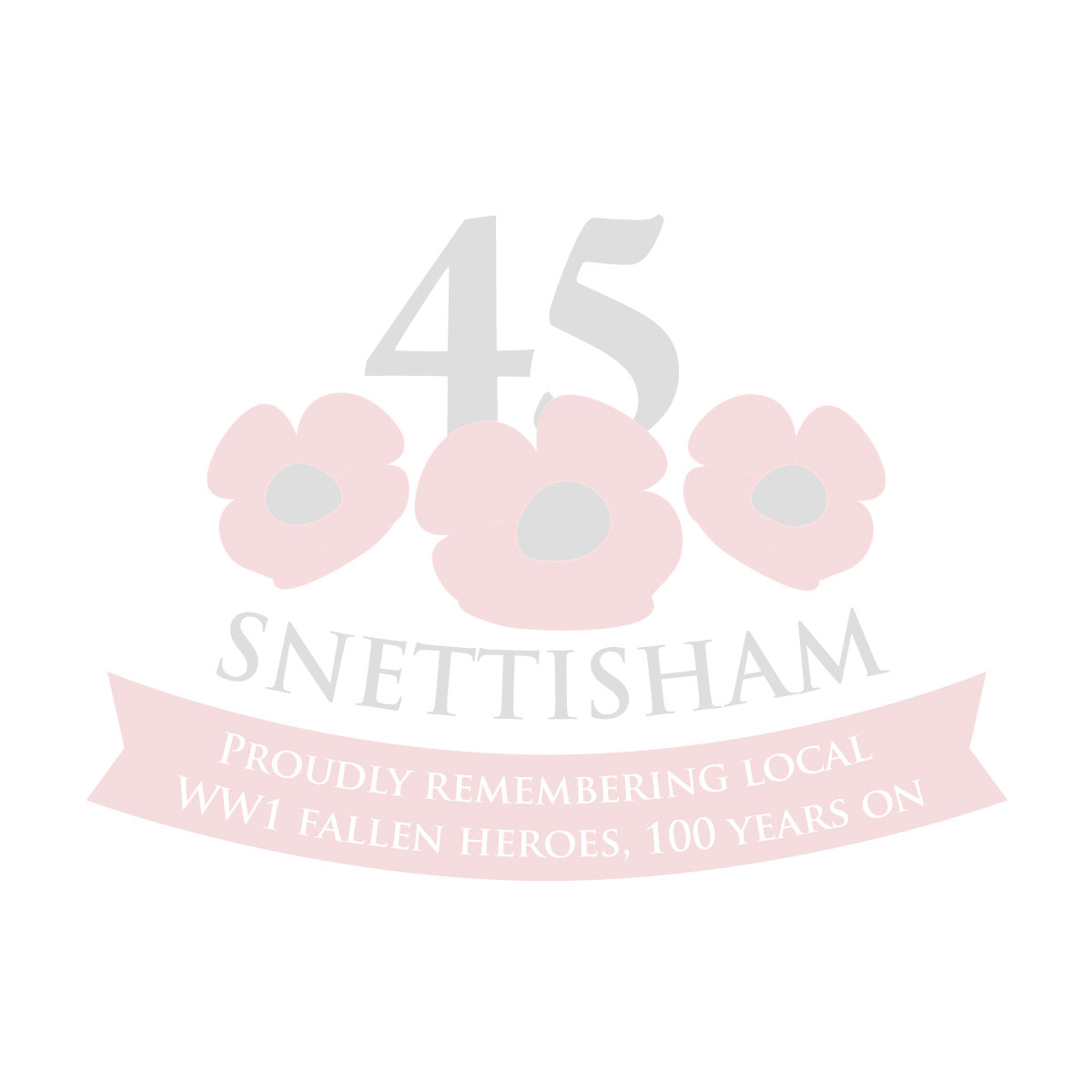Colin Goss Coleridge

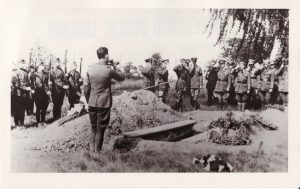
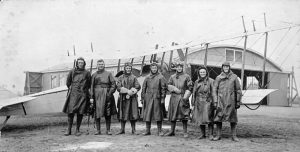
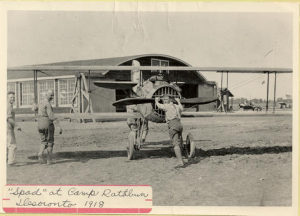
The Airman:
Colin Goss Coleridge joined the Royal Air Force in Canada as a Cadet in August 1917. He was made a 2nd Lieutenant in December 1917 and was promoted to Lieutenant a few months later.
He was made a flying instructor and during the cold Canadian winter he and his colleagues moved south to Fort Worth, Texas, USA to continue training pilots for the war effort.
Whilst here he did an act of selfless bravery which led to him becoming one of the first ever recipients of the UK’s MBE (a newly commissioned award to recognise acts of heroism away from the front line), rescuing a trapped cadet from a crashed plane which was on fire, being badly burned in the process.
He was appointed a flight instructor at Desoronto in Canada in April 1918 and died there on the 23rd July 1918, aged 29, when his plane crashed and caught fire.
He was buried with full military honours in Deseronto Cemetery.
Uniquely his name appears on the rolls ‘of honour’ of the Royal Air Force, the Royal Canadian Air Force and the Royal Canadian Mounted Police as well as Snettisham’s and both of its memorials.
Reports at the time of his death gave testament to how well regarded he was;
His Commanding Officer wrote ‘Colin was one of the most popular men in camp and he was also considered one of the best pilots and he had just returned from a special school of flying with a first-class report. Just previous to the accident he had the honour of being gazetted an MBE for excellent service in Texas in that he saved a cadet’s life from a machine which had taken fire, being painfully burnt in doing so.’
His Squadron commander wrote ‘Your son was such a good sort and so popular, that his loss has affected us more than any accident I have ever had in my squadron…. It all seems so wrong that there should have been no one on the spot to do for him what he had done for a cadet not long ago in Texas’.
A brother officer wrote ‘He was such a splendid chap. Everyone in the Flying Corps in Canada knew Collie and admired him immensely. In fact, his pulling a cadet from a burning ‘bus’ made him a Flying Corps hero. His work and the spirit he infused into camp will always be remembered.’
Colin Goss Coleridge’s role in the war is historically very significant. In 1916/17 England’s Royal Flying Corps was suffering huge pilot losses due to German technological superiority in the air and this was impacting on the entire war effort. A plea went out to the Commonwealth for more pilots and Canada’s answer was simply staggering.
Up to the end of the war in November 1918, the Canadian pilot training programme Colin Goss Coleridge and his flight instructor colleagues ran at the camp’s in Canada and Texas, USA (in Deseronto- Rathbun and Mohawk) trained 3,135 Canadian pilots, delivering 2,500 of them to the front in Europe and 7400 Canadian ground crew.
The programme also trained an additional 400 American pilots and 1600 American ground crew.
Historians believe this significantly changed the tide of the air war.
England’s Royal Flying Corps became the Royal Air Force in 1918 making it the world’s first dedicated Air Force and therefore it’s oldest.
However, this was followed very shortly afterwards by the formation of the Royal Canadian Air Force (RCAF), the world’s second oldest, coming about as a direct consequence of this training programme.
The Canadian people and the RCAF are still rightly proud of this lineage and the role Colin Goss Coleridge, his fight instructor colleagues and the pilots they trained played in the war, supporting England.
The man:
Colin Goss Coleridge was born on the 8th December 1888 in Ashton, Devon. His parents were John Coleridge and his wife Ellen Anne (nee Goss).
Colin had two older siblings John Clifford Charles born 21st March 1882 and Lorna Josephine born 1886.
By the 1891 census the entire family (Colin now 2 years old) were living at an address called ‘Rollestons’ in Writtle, Essex. John’s occupation was a Farmer. Ellen Anne’s mother, also named Ellen, was shown living with them as a widow. The family are doing well financially with a ‘Governess’ and ‘Servant’ living in.
On the 19th February 1895, Colin’s younger brother Sidney Keith is born in Writtle, Essex.
By the 1901 census John and Ellen Anne have moved to ‘the Hall’, Wilby, Norfolk. John is still a Farmer. Ellen (Ellen Ann’s mother) still lives with the family and Sidney is at home but John Clifford, Lorna and Colin have moved out.
In the 1901 census, Colin is shown living as a ‘boarder’ at ‘Nelson College’ 9, Elliott Place, Blackheath, London with a number of other students. Colin has two Grammar schools listed on his records; Chelmsford and Banham.
By the 1911 census Colin’s parents have taken up residence at Hall Farm, Snettisham, Norfolk. His father, John is still a Farmer and they are still caring for Colin’s grandmother Ellen (now 77) but all the children have left home.
At the time of the 1911 census, Colin, now 22, is single and residing at the Northwestern Hotel, Liverpool. His occupation is listed as ‘commercial traveller’.
On the 2nd August 1911 Colin arrives in Canada aboard the passenger vessel ‘Pomeranian’.
By the 1916 Canadian census, Colin now 27, is lodging at an address in Moose Jaw, Saskatchewan, Canada. He is still single and has become a Canadian citizen. He is shown serving as a Royal North West Mounted Police Officer (forerunner of the Royal Canadian Mounted Police). His regimental number being #5248.
It is highly possible that Colin was following in the footsteps of his older brother John Clifford, who had immigrated to Canada in 1906, taking lodgings as a single ‘border’ at an address in Brandon, Manitoba. By the 1911 census John Clifford had also joined the Royal North West Mounted Police – regimental number #4631 and was living at the Lethbridge Barracks, Medicine Hat, Manitoba. John Clifford went on to marry Lilly Agnes Huddle and have 3 children; Laura Lenna (b.1912), John Clifford Charles (b.1913) and Kathleen Lillian (b.1916). John Clifford survived the war and died in Canada in 1966.
Colin’s mother Ellen Anne died in 1928 and his father, John died in 1942.
Colin’s younger brother Sidney also served his country in the war. He enlisted as a private and was assigned to the Middlesex Regiment, rising through the ranks to end the war as an acting Captain. He survived the war, becoming a civil servant, dying in 1977.
Following his death, Colin left £121 18s and 3d to his father.
Colin’s parents donated a Credence table to St. Mark’s Church, Desoronto in honour, bearing a plaque. This is listed in the ‘Historic Landmarks of Canada -1919’
Pictures: Colin Goss Coleridge proudly in uniform, Colin Goss Coleridge being buried with military honours, pilots at Camp Rathbun and a ‘SPAD’ aircraft at Camp Rathbun
